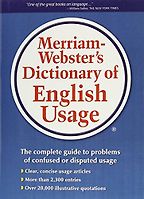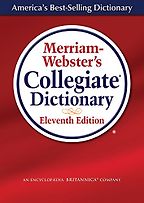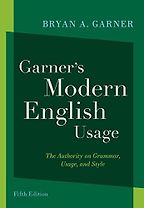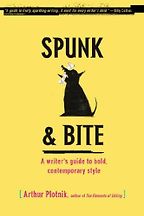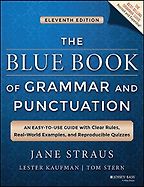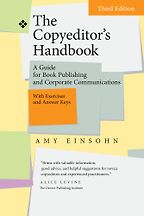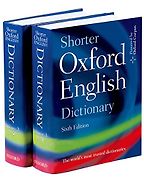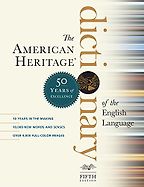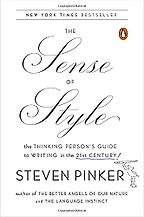
Books by Merriam-Webster
The Merriam-Webster dictionaries, also available online, have been the most frequently recommended dictionaries in our interviews on language and grammar. In his interview on grammar and punctuation, Mark Nichol of website Daily Writing Tips called Merriam-Webster’s Collegiate Dictionary the “dictionary of record” in the United States.
Meanwhile Lane Greene, author of the Johnson language column at the Economist, recommended Merriam-Webster’s Dictionary of English Usage as the vital book to turn to for clarity on issues like split infinitives—and every other grammar controversy you can think of.
How do these modern dictionaries connect to pioneering American lexicographer Noah Webster (1758-1843)? According to the company’s website, they are his “direct lexicographical heir.” In 1843, they “bought the rights to the 1841 edition of Webster’s magnum opus, An American Dictionary of the English Language, Corrected and Enlarged” — including the right to publish revised editions. There’s more information about Noah Webster and America’s first dictionary here.
“This is the ultimate guide for the perplexed. You’ve heard different rulings on the split infinitive. Who(m!) to believe? MWDEU traces the history of every rule it describes, telling you which classic grammarians uphold the rule and which oppose it. It also goes to the written evidence itself, and then makes its own ruling with eminent good sense. Is this usage rare and widely condemned? Don’t do it. Is that so-called ‘rule’ a recent invention that has never been truly followed? It’ll tell you that too, in entertaining (even surprisingly cheeky) mini-essays on every controversy you can think of.” Read more...
Grammar Books That Prove What They Preach
Lane Greene, Journalist
“In the United States it is considered, among publishing companies, to be the dictionary of record. What I mean by that is that if you go into the offices of a publishing company, you are not going to see various dictionaries on people’s bookshelves as you take a tour. Everybody is just going to have Merriam-Webster’s. I chose it because I felt there needs to be a dictionary on this list of five books because dictionaries are fundamental. A lot of people criticise Merriam-Webster’s because it is not necessarily clear – just because a word is in the dictionary, it doesn’t mean you should use it. For example, Merriam-Webster’s includes the word ‘irregardless.’ You might come back to me and say: ‘Irregardless is not a word. It is a duplicative of regardless. It is a ridiculous word.’ But I will respond, ‘Yes, it is a word. I just used it.’ It doesn’t mean that it is a good word, but it exists. There are a lot of things in this world that we wish didn’t exist but they do, and ‘irregardless’ is one of them.” Read more...
The Best Grammar and Punctuation Books
Mark Nichol, Linguist
Interviews where books by Merriam-Webster were recommended
-

1
Garner's Modern English Usage (5th edition)
by Bryan A. Garner -

2
Merriam-Webster's Collegiate Dictionary
by Merriam-Webster -

3
Spunk & Bite: A Writer's Guide to Bold, Contemporary Style
by Arthur Plotnik -

4
The Blue Book of Grammar and Punctuation
by Jane Straus -

5
The Copyeditor's Handbook: A Guide for Book Publishing and Corporate Communications
by Amy Einsohn
The Best Grammar and Punctuation Books, recommended by Mark Nichol
The Best Grammar and Punctuation Books, recommended by Mark Nichol
In the age of the internet, we are all writers. Correct grammar and punctuation are key to making a good impression. Grammar geek Mark Nichol, a writer at Daily Writing Tips, picks five of the best grammar and punctuation books, and tells us why bad grammar leads to anarchy.
Grammar Books That Prove What They Preach, recommended by Lane Greene
Most grammar books say ‘do this, and that’s that.’ But who says? How do they know? Real rules are grounded in the facts of actual standard usage. Here are five grammar books that show their work, telling you not only what to do but why, and how they know. Accept nothing less.
